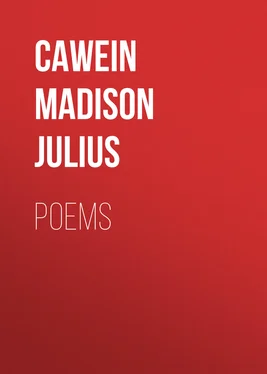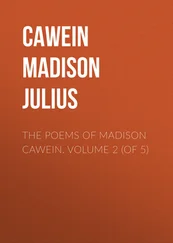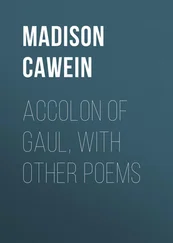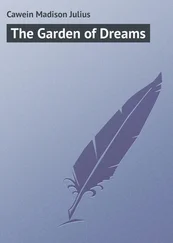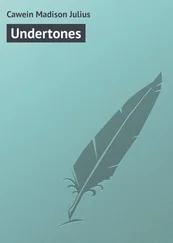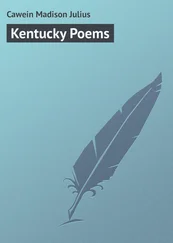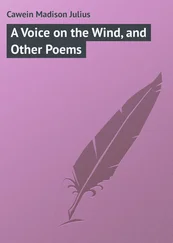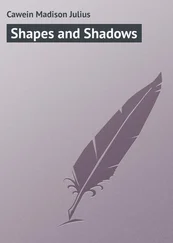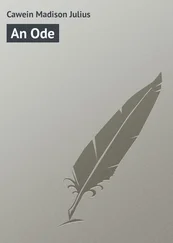Madison Cawein - Poems
Здесь есть возможность читать онлайн «Madison Cawein - Poems» — ознакомительный отрывок электронной книги совершенно бесплатно, а после прочтения отрывка купить полную версию. В некоторых случаях можно слушать аудио, скачать через торрент в формате fb2 и присутствует краткое содержание. Жанр: foreign_poetry, Поэзия, foreign_antique, foreign_prose, на английском языке. Описание произведения, (предисловие) а так же отзывы посетителей доступны на портале библиотеки ЛибКат.
- Название:Poems
- Автор:
- Жанр:
- Год:неизвестен
- ISBN:нет данных
- Рейтинг книги:4 / 5. Голосов: 1
-
Избранное:Добавить в избранное
- Отзывы:
-
Ваша оценка:
- 80
- 1
- 2
- 3
- 4
- 5
Poems: краткое содержание, описание и аннотация
Предлагаем к чтению аннотацию, описание, краткое содержание или предисловие (зависит от того, что написал сам автор книги «Poems»). Если вы не нашли необходимую информацию о книге — напишите в комментариях, мы постараемся отыскать её.
Poems — читать онлайн ознакомительный отрывок
Ниже представлен текст книги, разбитый по страницам. Система сохранения места последней прочитанной страницы, позволяет с удобством читать онлайн бесплатно книгу «Poems», без необходимости каждый раз заново искать на чём Вы остановились. Поставьте закладку, и сможете в любой момент перейти на страницу, на которой закончили чтение.
Интервал:
Закладка:
In Mr. Cawein's work, therefore, what is not the expression of the world we vainly and rashly call the inanimate world, is the hardly more dramatized, and not more enchantingly imagined story of lovers, rather unhappy lovers. He finds his own in this sort far and near; in classic Greece, in heroic England, in romantic Germany, where the blue flower blows, but not less in beautiful and familiar Kentucky, where the blue grass shows itself equally the emblem of poetry, and the moldering log in the cabin wall or the woodland path is of the same poetic value as the marble of the ruined temple or the stone of the crumbling castle. His singularly creative fancy breathes a soul into every scene; his touch leaves everything that was dull to the sense before glowing in the light of joyful recognition. He classifies his poems by different names, and they are of different themes, but they are after all of that unity which I have been trying, all too shirkingly, to suggest. One, for instance, is the pathetic story which tells itself in the lyrical eclogue "One Day and Another." It is the conversation, prolonged from meeting to meeting, between two lovers whom death parts; but who recurrently find themselves and each other in the gardens and the woods, and on the waters which they tell each other of and together delight in. The effect is that which is truest to youth and love, for these transmutations of emotion form the disguise of self which makes passion tolerable; but mechanically the result is a series of nature poems. More genuinely dramatic are such pieces as "The Feud," "Ku Klux," and "The Lynchers," three out of many; but one which I value more because it is worthy of Wordsworth, or of Tennyson in a Wordsworthian mood, is "The Old Mill," where, with all the wonted charm of his landscape art, Mr. Cawein gives us a strongly local and novel piece of character painting.
I deny myself with increasing reluctance the pleasure of quoting the stanzas, the verses, the phrases, the epithets, which lure me by scores and hundreds in his poems. It must suffice me to say that I do not know any poem of his which has not some such a felicity; I do not know any poem of his which is not worth reading, at least the first time, and often the second and the third time, and so on as often as you have the chance of recurring to it. Some disappoint and others delight more than others; but there is none but in greater or less measure has the witchery native to the poet, and his place and his period.
It is only in order of his later time that I would put Mr. Cawein first among those Midwestern poets, of whom he is the youngest. Poetry in the Middle West has had its development in which it was eclipsed by the splendor, transitory if not vain, of the California school. But it is deeply rooted in the life of the region, and is as true to its origins as any faithful portraiture of the Midwestern landscape could be; you could not mistake the source of the poem or the picture. In a certain tenderness of light and coloring, the poems would recall the mellowed masterpieces of the older literatures rather than those of the New England school, where conscience dwells almost rebukingly with beauty….
W. D. HOWELLS.From The North American Review . Copyright, 1908, by the North American
Review Publishing Company.
POEMS
HYMN TO SPIRITUAL DESIRE
Mother of visions, with lineaments dulcet as numbers
Breathed on the eyelids of Love by music that slumbers,
Secretly, sweetly, O presence of fire and snow,
Thou comest mysterious,
In beauty imperious,
Clad on with dreams and the light of no world that we know:
Deep to my innermost soul am I shaken,
Helplessly shaken and tossed,
And of thy tyrannous yearnings so utterly taken,
My lips, unsatisfied, thirst;
Mine eyes are accurst
With longings for visions that far in the night are forsaken;
And mine ears, in listening lost,
Yearn, waiting the note of a chord that will never awaken.
Like palpable music thou comest, like moonlight; and far,—
Resonant bar upon bar,—
The vibrating lyre
Of the spirit responds with melodious fire,
As thy fluttering fingers now grasp it and ardently shake,
With laughter and ache,
The chords of existence, the instrument star-sprung,
Whose frame is of clay, so wonderfully molded of mire.
Vested with vanquishment, come, O Desire, Desire!
Breathe in this harp of my soul the audible angel of Love!
Make of my heart an Israfel burning above,
A lute for the music of God, that lips, which are mortal, but stammer!
Smite every rapturous wire
With golden delirium, rebellion and silvery clamor,
Crying—"Awake! awake!
Too long hast thou slumbered! too far from the regions of glamour
With its mountains of magic, its fountains of faery, the spar-sprung,
Hast thou wandered away, O Heart!"
Come, oh, come and partake
Of necromance banquets of Beauty; and slake
Thy thirst in the waters of Art,
That are drawn from the streams
Of love and of dreams.
"Come, oh, come!
No longer shall language be dumb!
Thy vision shall grasp—
As one doth the glittering hasp
Of a sword made splendid with gems and with gold—
The wonder and richness of life, not anguish and hate of it merely.
And out of the stark
Eternity, awful and dark,
Immensity silent and cold,—
Universe-shaking as trumpets, or cymbaling metals,
Imperious; yet pensive and pearly
And soft as the rosy unfolding of petals,
Or crumbling aroma of blossoms that wither too early,—
The majestic music of God, where He plays
On the organ, eternal and vast, of eons and days."
BEAUTIFUL-BOSOMED, O NIGHT
Beautiful-bosomed, O Night, in thy noon
Move with majesty onward! soaring, as lightly
As a singer may soar the notes of an exquisite tune,
The stars and the moon
Through the clerestories high of the heaven, the firmament's halls:
Under whose sapphirine walls,
June, hesperian June,
Robed in divinity wanders. Daily and nightly
The turquoise touch of her robe, that the violets star,
The silvery fall of her feet, that lilies are,
Fill the land with languorous light and perfume.—
Is it the melody mute of burgeoning leaf and of bloom?
The music of Nature, that silently shapes in the gloom
Immaterial hosts
Of spirits that have the flowers and leaves in their keep,
Whom I hear, whom I hear?
With their sighs of silver and pearl?
Invisible ghosts,—
Each sigh a shadowy girl,—
Who whisper in leaves and glimmer in blossoms and hover
In color and fragrance and loveliness, breathed from the deep
World-soul of the mother,
Nature; who over and over,—
Both sweetheart and lover,—
Goes singing her songs from one sweet month to the other.
Lo! 'tis her songs that appear, appear,
In forest and field, on hill-land and lea,
As visible harmony,
Materialized melody,
Crystallized beauty, that out of the atmosphere
Utters itself, in wonder and mystery,
Peopling with glimmering essence the hyaline far and the near….
Behold how it sprouts from the grass and blossoms from flower and tree!
In waves of diaphanous moonlight and mist,
In fugue upon fugue of gold and of amethyst,
Around me, above me it spirals; now slower, now faster,
Like symphonies born of the thought of a musical master.—
O music of Earth! O God, who the music inspired!
Let me breathe of the life of thy breath!
And so be fulfilled and attired
In resurrection, triumphant o'er time and o'er death!
Интервал:
Закладка:
Похожие книги на «Poems»
Представляем Вашему вниманию похожие книги на «Poems» списком для выбора. Мы отобрали схожую по названию и смыслу литературу в надежде предоставить читателям больше вариантов отыскать новые, интересные, ещё непрочитанные произведения.
Обсуждение, отзывы о книге «Poems» и просто собственные мнения читателей. Оставьте ваши комментарии, напишите, что Вы думаете о произведении, его смысле или главных героях. Укажите что конкретно понравилось, а что нет, и почему Вы так считаете.
